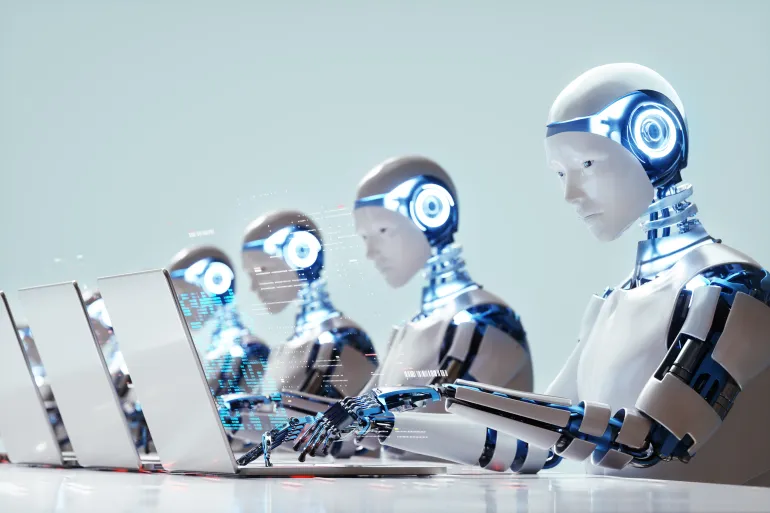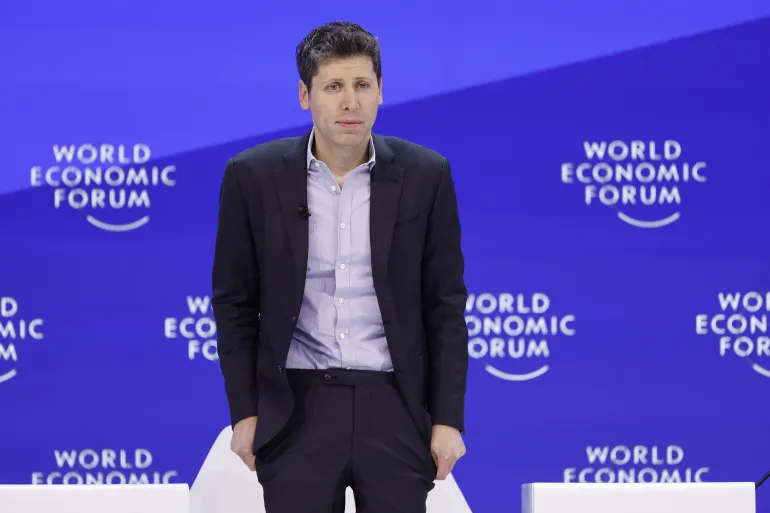
Global tech leaders call for fixed income instruments as AI takes jobs (Getty).
Artificial intelligence is no longer a reason to take shelter in fixed income instruments from potential unemployment after new technology replaces traditional jobs, as a number of analysts have begun to believe that the artificial intelligence bubble is beginning to burst. But what comes after this burst?
Writer Oshan Garu says in an article on the Vox website that it is possible that this bubble will inflate again, and perhaps one of these inflations will lead to changes that go beyond new cycles of innovation and unemployment as a result of technology replacing humans.
Oshan Garu adds that the need for better anti-poverty policies – including fixed income – exists even without the development of artificial intelligence.
Sam Altman, head of the artificial intelligence company OpenAI, previously called for interest in fixed income tools, because artificial intelligence eliminates traditional jobs while accumulating wealth for a few people.
A number of major figures in the tech world, from Elon Musk, the CEO of Tesla and X (formerly Twitter), to Geoffrey Hinton, known as the godfather of artificial intelligence, believe that artificial intelligence will herald a wave of technological unemployment, and that basic income will become necessary to support people’s survival.
Fixed income instruments are those that provide their owners with a specific return every known period, including bank deposits, bond returns, and pension funds.
Fixed income…for or against?
In a study conducted from November 2020 to October 2023 and supported by OpenAI, 1,000 people were given $1,000 per month with no conditions attached as a fixed income.
In his article on Vox, O’Shan Garo says he is puzzled. In general, fixed income may be an effective policy for combating poverty, but such studies do not seem to be working to promote fixed income as a reality (i.e. they remain experimental studies in a temporary period).
Gareau argues that spreading fears of AI taking over all jobs generates much greater enthusiasm for fixed income, but linking the fixed income issue to fears of rapid AI advances risks undermining the idea itself. If there is not a huge wave of AI-induced unemployment, and the modern technology bubble bursts and turns out to be not much different from the technology innovation and unemployment cycles of the past, then fixed income support will decline.

According to Jarrow, the fixed-income recipients in the study sample spent an average of an additional $310 per month, most of it on housing, food, and car expenses, but overall their income decreased by about $125 per month excluding transfers, and the decline in earnings was largely driven by people choosing to work less. A little, given that the transfers mean they’re still making progress.
Overall, their participation in the labor market decreased by 2%, which means working approximately 1.3 hours less per week, or approximately 8 fewer working days over the course of a year.
At first glance, this finding runs somewhat counter to other fixed-income experiments in the United States, and the argument advocates have long made that unconditional cash won’t make people choose to work less, Garow said. But reducing the number of workdays to eight days a year doesn’t sound like the full-time scenario envisioned. The health impact of the fixed cash handout was a bit more pronounced, Garow said, and didn’t seem to do much. Despite detailed data, including blood samples from some participants and food intake, “we found no evidence of an improvement in physical health,” the study says.
In contrast, there were short-term improvements in mental health, mostly through reduced stress, but these faded by the end of the first year, and recipients also showed a significant increase in food security during the first year, which also diminished by the second year. If there is a positive aspect to the health paper, it is that recipients go to hospitals, doctors, and dentists more often, and spend about $20 more per month on medical care as a result of the transfer, which the authors note could translate into long-term indirect benefits.
Click here more Tech news
